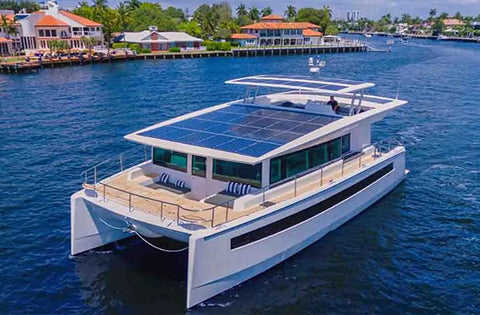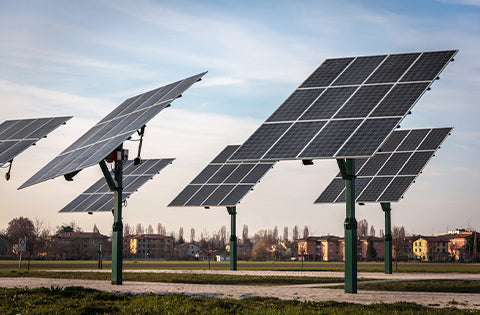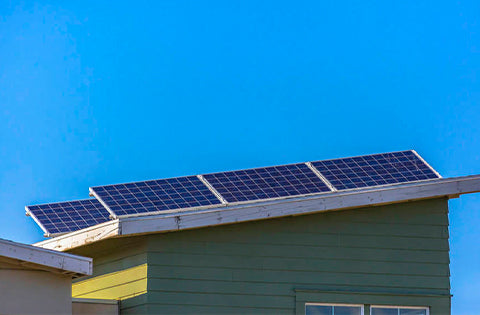Yacht, for many people, it`s not only a vehicle to help them sailing on the sea, but a tool to refresh their boring working life. The joys brought by yacht is incredible and fantastic. However, with the threat of global warming and the shortage of energy, the traditional energy supply for yacht is gradually out-date. Have you ever aware that the solar power is maybe a right choice for you yachting life.
Whether completely solar-powered or only boosted with solar power as an additional, green energy source, sun-powered yachts are fast becoming a hot new trend among boat builders and yacht owners alike. Yachts boosted by solar power are increasingly in demand these days, both for their lessened impact on the environment as well as their increased energy efficiency. So, let's dive into everything you need to know about renewable energy or solar-powered yachts.
The benefits of yacht solar power
We already know that using solar power is an environmentally friendly choice and that solar-powered yachts have reduced carbon emissions. But there are many more benefits to adding solar power capability to your yacht.
Solar power is cheaper
Solar energy is free and limitless. A solar-powered boat eliminates the cost of fuel forever. Even if your yacht makes use of both fuel and solar power, you will still enjoy significant savings on fuel.
Using solar power reduces sound pollution
Though solar-powered boats are not completely silent, they are a lot less noisy than generator-powered boats. Reduced noise levels will ensure that your boat causes less disturbance to marine life and will also make for a more peaceful and pleasant cruising experience for you and your passengers.
Solar power offers continuous charging
As long as the sun is shining, solar energy will continuously charge your yacht’s battery, even when the boat is not in use. This energy can then be stored for later use.
Solar power will keep you connected
Having a yacht with solar power capacity will help ensure that you don't have to miss out on any “land pleasures”. Having a fully charged battery will allow you to play games on a console, heat up food in a microwave and watch Netflix to your heart's content. Not to mention keeping all your devices charged whilst you're out on the water!
Components of a solar power system
Installing solar power on your boat doesn't have to be complicated. The four main components of a solar power system are:
Solar panels Charge controller Inverter Battery
On a solar power system, the solar panels and the battery work hand-in-hand. The solar panels generate the energy while the battery stores it. You'll find that most marine solar panel systems require charge controllers to ensure the battery doesn't receive a higher voltage than it is capable of handling, which could lead to damage.The inverter converts DC (direct current) into AC (alternating current). If you're using appliances like microwaves, TVs, or hairdryers on your yacht, you will require an inverter.
These components can be bought separately, but you can also buy solar panel kits that include some or all of the parts required. Some marine solar panel kits even include wires, cables, and mounting equipment to get the system up and running.
Which type of solar panel is best for you?
Monocrystalline and polycrystalline are the two main types of solar panels and each type comes with its own advantages and disadvantages. Let's take a closer look at each option.
Monocrystalline solar panel
These solar panels are made with the highest-quality silicone and are also the most space-efficient option. Monocrystalline solar panels also have the highest heat tolerance and are the longest-lasting panels available. However, they are more expensive and less shading tolerant than polycrystalline solar panels.
Polycrystalline solar panel
Polycrystalline solar panels have a simpler manufacturing process. They are not as space-efficient as monocrystalline panels, but they are more cost-efficient and are not as sensitive to shading.
Rigid solar panels
Rigid solar panels are the best option for yachts. They are economical, durable, shade-tolerant, and efficient, with the longest life span. However, their weight, windage, and square shape could make them a potentially awkward fit on certain curved boats.
Semi-flexible solar panels
The efficiency and durability of semi-flexible solar panels vary depending on their composition as well as their manufacturer. Although they don't bring the same economy, efficiency, or lifespan that rigid solar panels do, semi-flexible solar panels do offer extreme ease of installation. Being thin, lightweight, and mouldable, they can be bolted, taped, or adhered with strong magnets to either canvas or the deck surface. All things considered, rigid solar panels are still the best recommendation for yachts.
Installing solar panels on your yacht
How you'll go about installing a solar panel on your boat depends on the type of solar panel – and where you want to install it. You can fit a rigid solar panel to the yacht’s deck using aluminium brackets. If you want to attach a solar panel to the boat’s pushpit or guardrails, it's likewise best to use brackets and screws. Tying the solar panel to the rails or fittings is possible, but this is not recommended as this method is less secure. It is possible to drill through the frame of a rigid solar panel, but remember never to drill through the active surface of the panel, as this will cause permanent damage.
Sailing into a solar-powered future
Yacht solar power is fast gaining popularity for the many benefits it offers. Which solar power system you select for your boat will depend on your particular needs. The four components of a solar power system can be purchased alone or as a kit. Choose the right solar panel to fit for your yacht! Contact SOLARPARTS now, to begin your yachting journey!
Twitter: Solarparts Instagram: Solarparts
Tumblr: Solarparts Pinterest: Solarparts
Facebook: Shenzhen Solarparts Inc
Email address: Philip@isolarparts.com
Homepage: www.isolarparts.com





